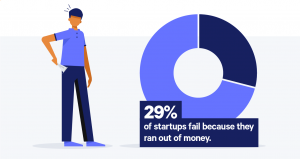As much as social media is a great place to be, the best of it is always way below the surface. This is equally true for average users and brands with big corporate accounts: getting valuable insights on social media requires some digging.
Market analytics, lead prospects, competition intel, audience research, influencers, and many more jewels of social networks are all hidden behind social media analytics. They constitute the cornerstone of any SMM strategy, and marketers need to know the shortest paths to analytics at any given point of the marketing campaign.
To make navigating among social media analytics tools easier for you, I put together a list of 10 sure-fire toolkit options that fetch different kinds of social data insights. The list, initially published on Awario blog, consists of social media analytics tools that cover every aspect of maintaining a brand’s online presence.
1. Industry, brand, and audience analytics
Before you lay out your SMM strategy, it’s crucial to understand the environment you’ll be operating in. This requires a deep scan of the industry, as well as your brand’s place in the big picture of things.
Social media listening is perfect for the job, as it empowers you to run social media monitoring and analyze the data collected in the process. With a social listening tool at your disposal, you can set up monitoring of all mentions of your industry and brand. By doing so, you get to examine everything related to your business environment.
If you set up mentions monitoring for your industry, the analytics will uncover the biggest companies, opinion leaders, publishers, as well as the key topics and trends buzzing at any given moment. You can then use these insights in shaping your own social media presence.
If you start monitoring mentions of your brand, the analytics will cover the volume of conversations around it, the sentiment behind them, and the major accounts mentioning your company online. Alongside brand mentions, you also get audience analytics ranging from demographics to interests and alliances.
2. Competitive analytics
Your competition is where you get the most valuable lessons from. Direct competitors operate in the same environment, try similar tactics, and research new approaches to winning customers. Therefore, getting competition intel is a way to reverse-engineer the best strategies and learn from your competitors’ mistakes.
Social media analytics tools let you spy on your competition without hiring a full-time intelligence officer. Analyze your rival’s social media presence and the kind of engagement it generates, be the first to know about new strategies, track the hashtags used in their campaigns, and get acquainted with their product and business planning as presented on social media.
Your competitors are giving off more than the human eye can gather. With social media analytics tools, you cut through the noise and get right to the valuable insights.
3. Publishing and management
Once you’ve researched your industry, competitors, audience, and wrapped up your SMM strategy using the insights fetched by social media analytics tools, it’s time to establish or re-think your own social media presence. This is where publishing tools step in.
Social media analytics tools that provide publishing features were developed for teams managing corporate accounts. Therefore, you can rely on one of those toolkits to set up smooth scheduling, publishing, and collaboration workflows.
Whether you’re managing social media accounts for a single brand or providing SMM services to multiple clients, there’s a tool out there that’ll give you maximum support. Drafting, designing, assigning and approving, scheduling, reusing, and reporting on the progress can all be sped up and improved with the right toolkits.
4. Custom metrics, integrations, and reporting
As much as it’s important to stick to a data-powered SMM strategy and measure the efforts as you go, reporting in universal metrics is a lifesaver. It’s not always easy to communicate your progress to all the members of your own team, let alone other teams and top management.
This is where you need social media analytics tools that offer custom metrics and integrations into business intelligence systems. They let you automate reporting to absolute perfection and set up a workflow that empowers you to quickly translate your SMM progress into business KPIs.
Reporting is a task that’s often overlooked in terms of planning and resource allocation. Make sure you have a backup in the form of a reliable social media analytics tool to create a smarter reporting workflow that will save your team’s resources.
![10 Best Social Media Analytics Tools [Infographic] 10 Best Social Media Analytics Tools [Infographic]](https://www.onlinesalesguidetip.com/wp-content/uploads/2020/10/10-Best-Social-Media-Analytics-Tools-Infographic.png)
Digital & Social Articles on Business 2 Community
(15)






